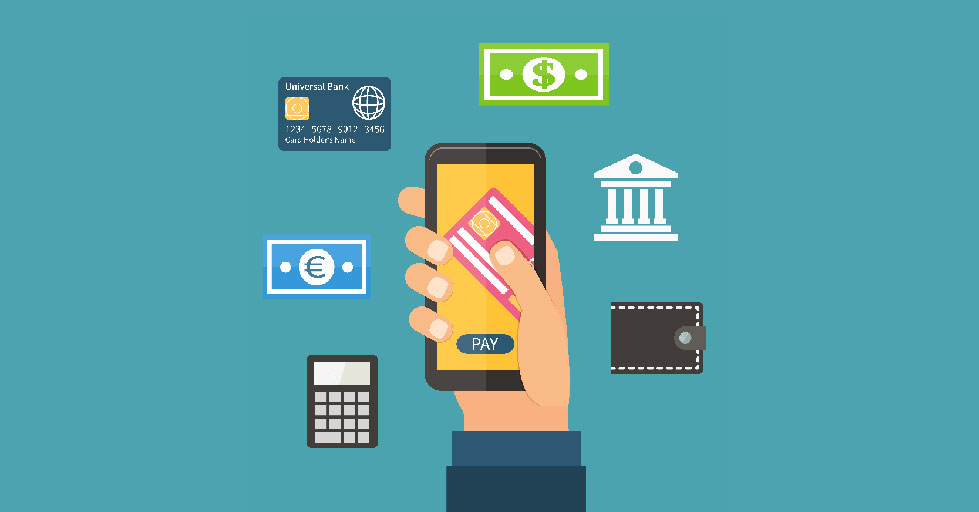Mobile payment technology has transformed the world of commerce. As the payments get more secure and are commonly accepted by merchants across the world we will continue to witness rapid growth in this sector. According to Statista, the global payments revenue is projected to grow to a staggering $1080 billion by 2022. This means consumers and retailers are ready to adopt these new payment methods. The next revolution in commerce is already here.
A major component of this system is a digital wallet. It acts as your virtual checkbook and credit card. The safety of digital wallets is a major concern for consumers; let us explore seven best practices that will ensure that your payments and data remain safe. However, first, we will try to understand the origin of digital wallets.
Contents
The History of Digital Wallets
Before we outline security tips, let us understand how digital wallets became the famous payment methods they are today. Digital wallets are being considered as the future of real-world payments. Technology has made payments easier and more convenient in today’s world. The trend can be traced back to NFC or near-field communication. Companies are exploring options that utilize Wi-Fi, Bluetooth, and QR codes to serve as a replacement for NFC.
Digital wallets are based on sophisticated encryption algorithms, but even these modern wallets can become vulnerable if exposed to online threats. Companies do their best to combat fraud and thwart malicious attacks, but there are a few important things you can do to remain protected.
How to Enhance Your Digital Wallet Security?
Securing your digital data means more peace of mind and control. Here are seven important tips that you can use to enhance the security of your digital wallet.
- Enable Passwords on All Your Devices
Today’s consumer, on average, owns four connected devices. Security experts recommend that you enable passwords on all your smartphones, tablets, and other devices that connect to the internet. This simple precaution adds an extra layer of security to your digital world.
- Connect Through Secure Networks
Always keep track of which type of networks you connect to. Only connect to networks that you can trust. Try your best to avoid authorizing connections to public Wi-Fi networks. These are often unsecured channels that do not require passwords. Wi-Fi networks that require a password are identified as WPA2 or WPA. An unsecured Wi-Fi is labeled as WEP and allows anyone to connect and should be avoided. One way you can guarantee home network security is by signing up for a secure internet connection that is encrypted by a strong security protocol. For instance, Spectrum Internet comes with a complete protection suite to keep you safe from prying eyes when you are working online. So, if you are looking for such an internet facility, then click here to find all the viable options available in your area.
- Only Install Apps from Trustworthy Sources
Apps might seem harmless, but appearances can be deceiving. If the app ends up executing malicious code on your device, you will compromise your data as well as your device. What seems like a free game might contain some hidden feature that collects tour personal data. Make sure you read user reviews and ratings on Play Store or the App Store. Good reviews and a higher star rating usually guarantees the integrity of the app.
- Never Share Sensitive/Private Data
This is a good rule of thumb especially since we are living in a hyper-connected always-on digital world. Never share any sensitive information or data with people you do not trust. Financial services and their employees will never request your passwords/account numbers/ credit card number or other personal information over the phone or via email.
- Keep Your Login Credentials Secret
Login credentials often require you to memorize complicated passwords. It is tempting to write these down and keep them in plain sight. We suggest you avoid this because it could compromise the security of your digital wallet. Your data might be misused or your credentials/passwords might leave you vulnerable to malicious attacks.
- Create a Unique and Strong Password
People often choose one unique password and reuse it for their social networking accounts, email, as well as financial services accounts. This makes you more vulnerable to unauthorized breaches of access. Use a unique complicated password that is only applicable to your digital wallet. Remember when it comes to digital wallet passwords, recycling is actually a bad thing.
What to do if your digital wallet gets compromised?
In case the worst happens and your digital wallet gets hacked, report the fraudulent activity right away and freeze all further transactions and any legal reporting requirements. This will minimize the hassles involved in reclaiming your account/wallet. It is always a good idea to suspend the account to save yourself from heavy losses.
Final Words
These seven digital wallet security tips will help you remain safe as you conduct your transactions online and on mobile. Sometimes a few simple hacks can save you a ton of frustration and monetary losses. Organizations that utilize digital wallets should have multiple layers of security to keep their customers safe.




